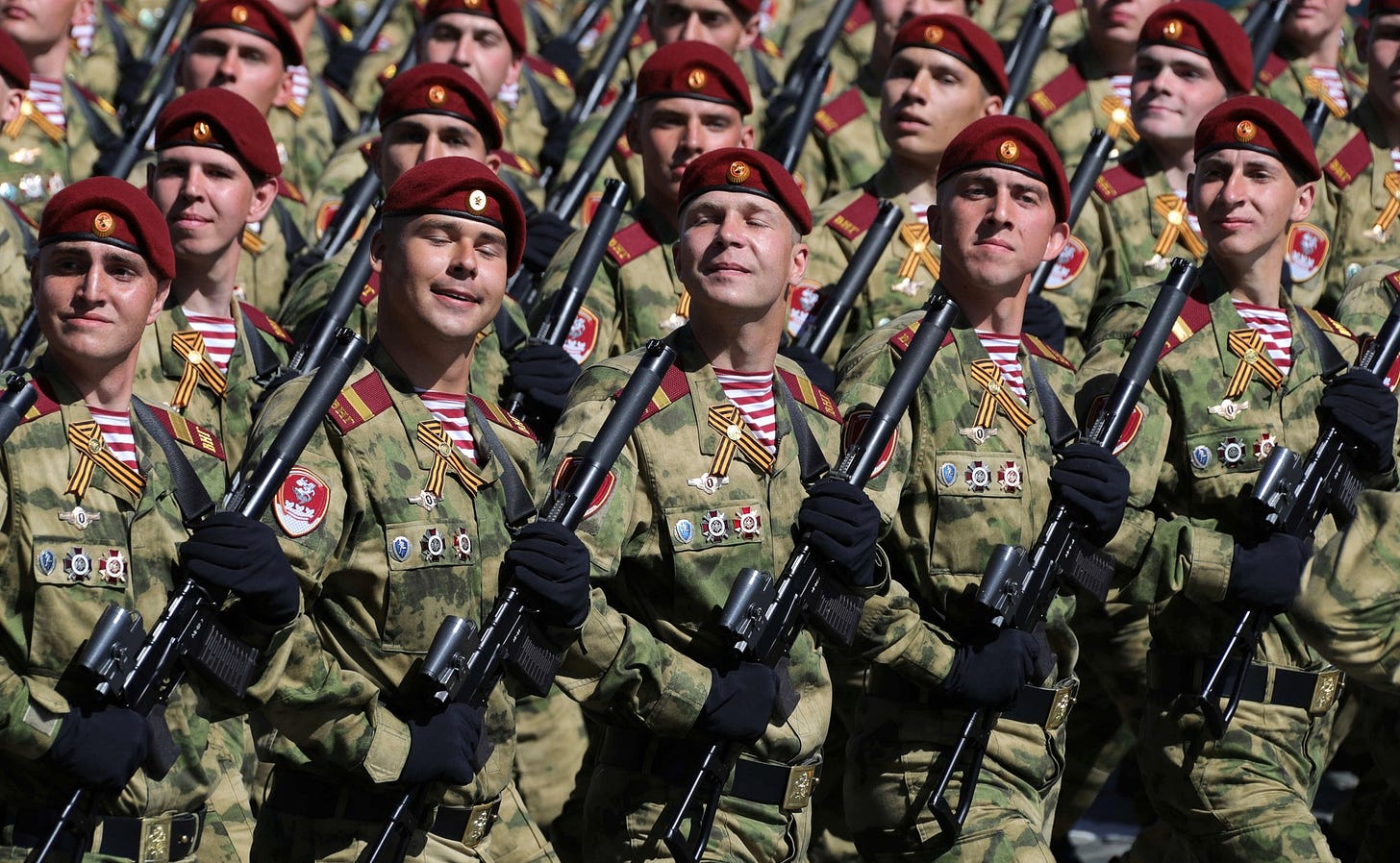The Dilemma of Rationality in Foreign Policy
The Case of Putin’s Russia
Victory Day on Red Square, Moscow, May 9, 2018 Parade, The parade march of the Special Purpose Operational Division, Source: www.kremlin.ru
With the threat of a new, potentially massive Russian attack on Ukraine, an old debate has resurfaced: that of rationality in foreign policy and, in particular, that of the Russian regime. Many have long wondered whe…


